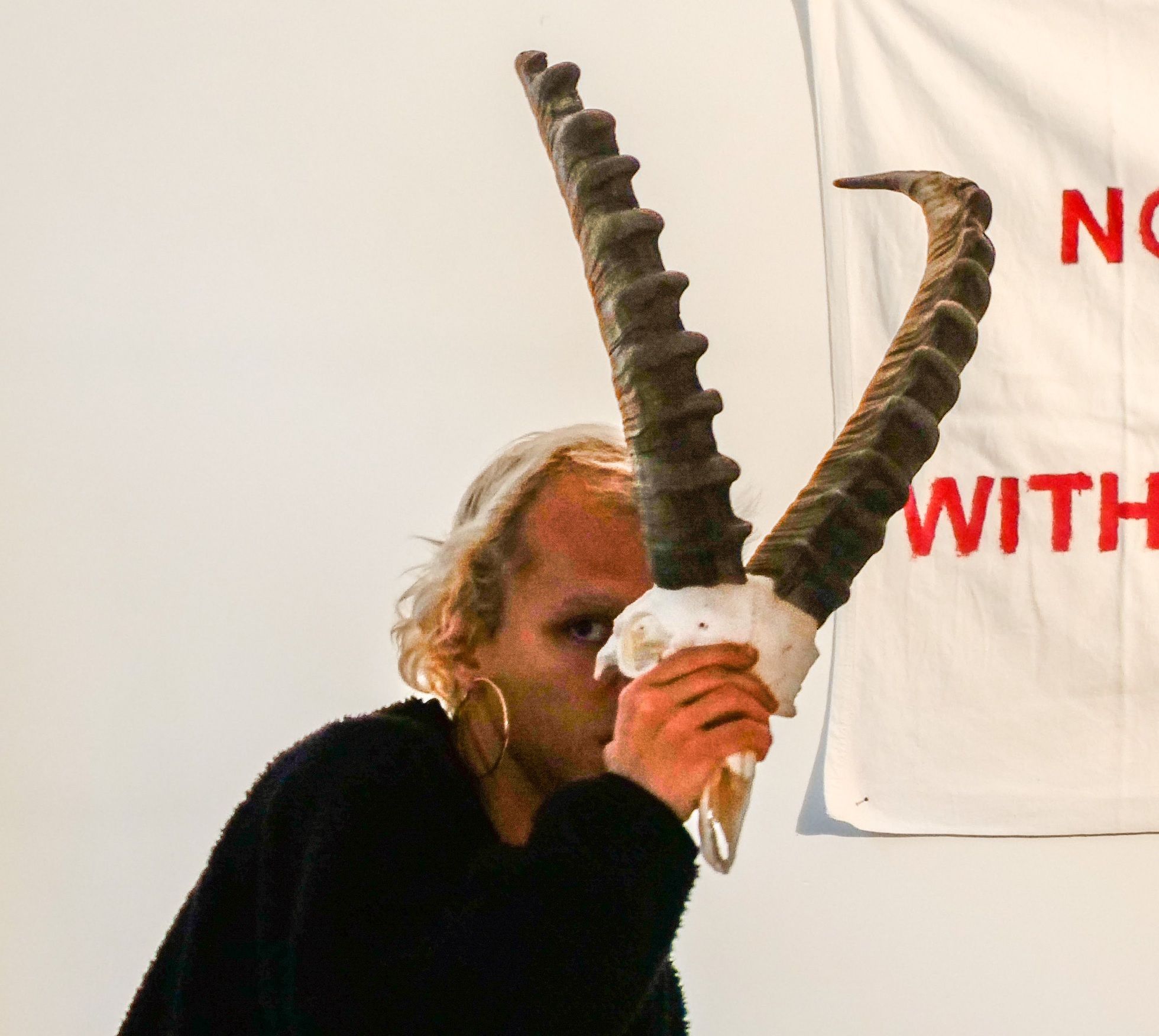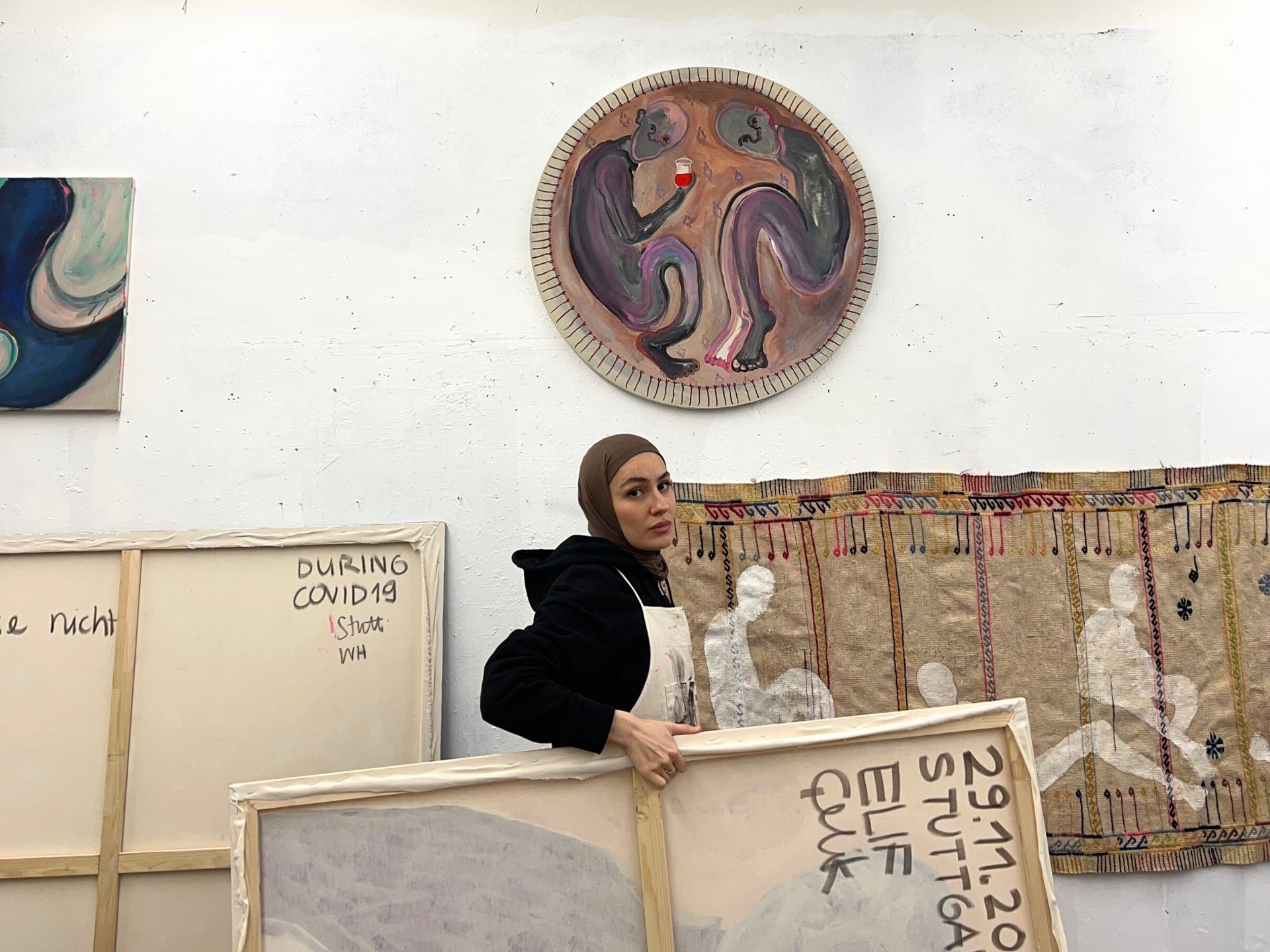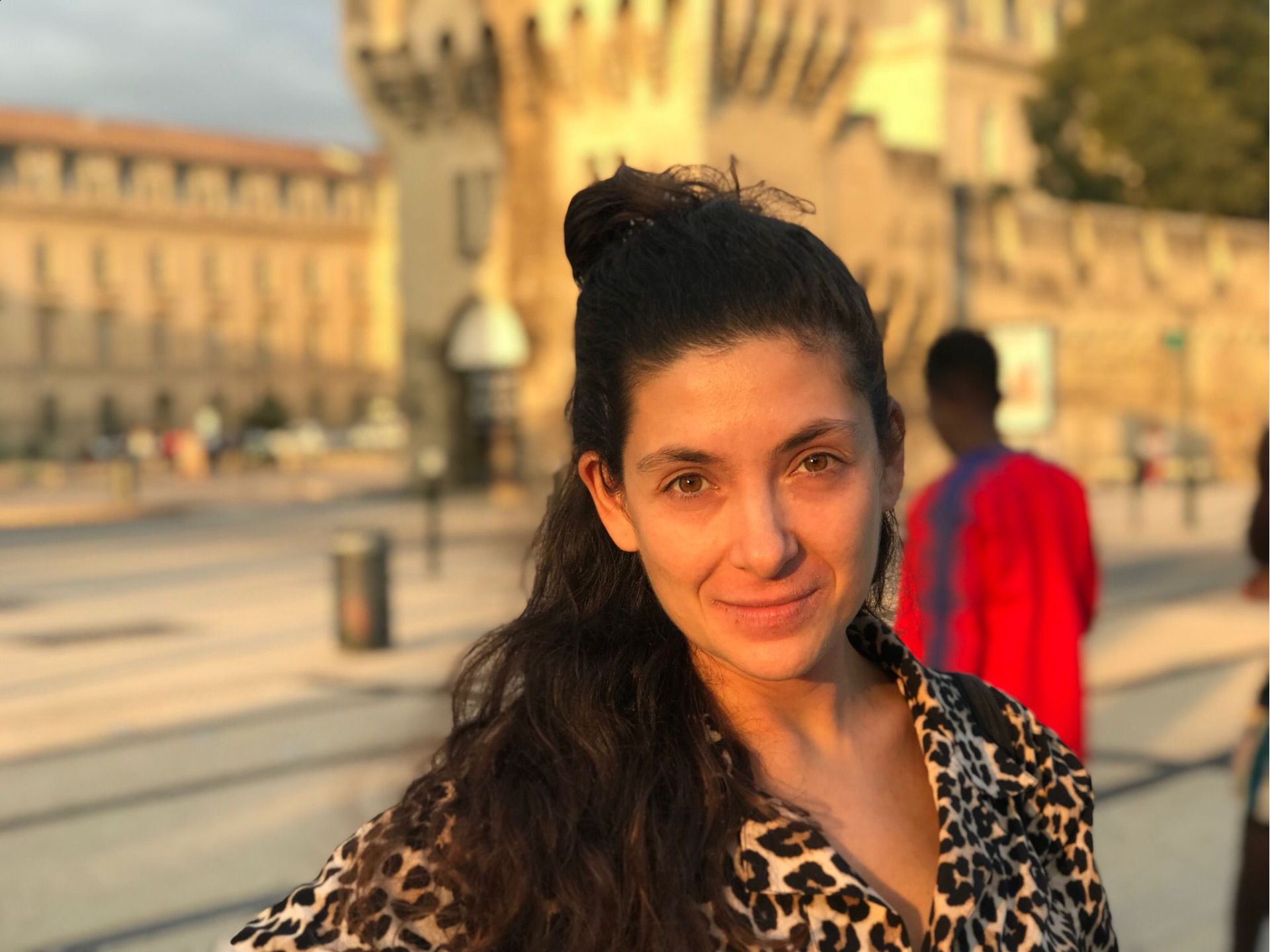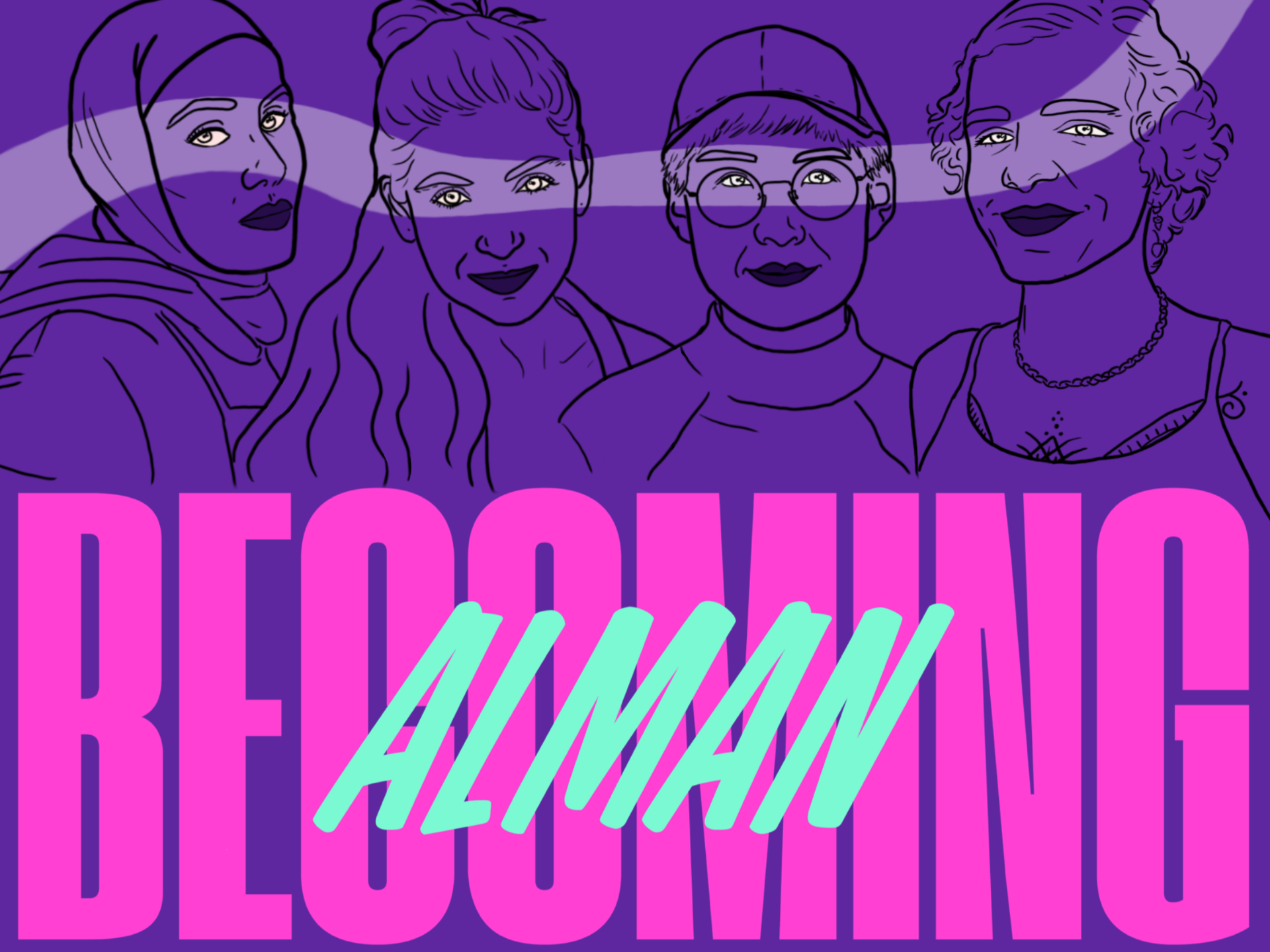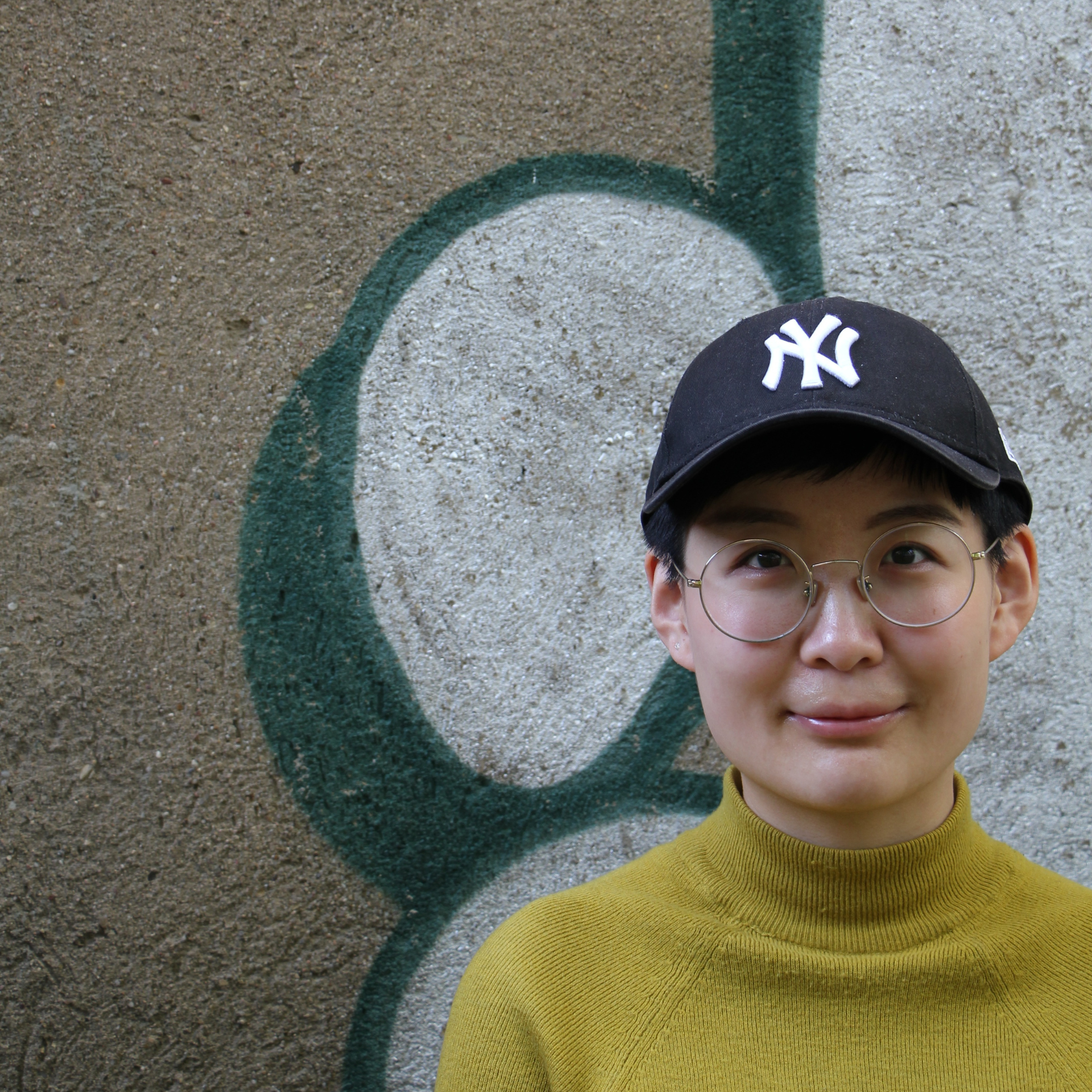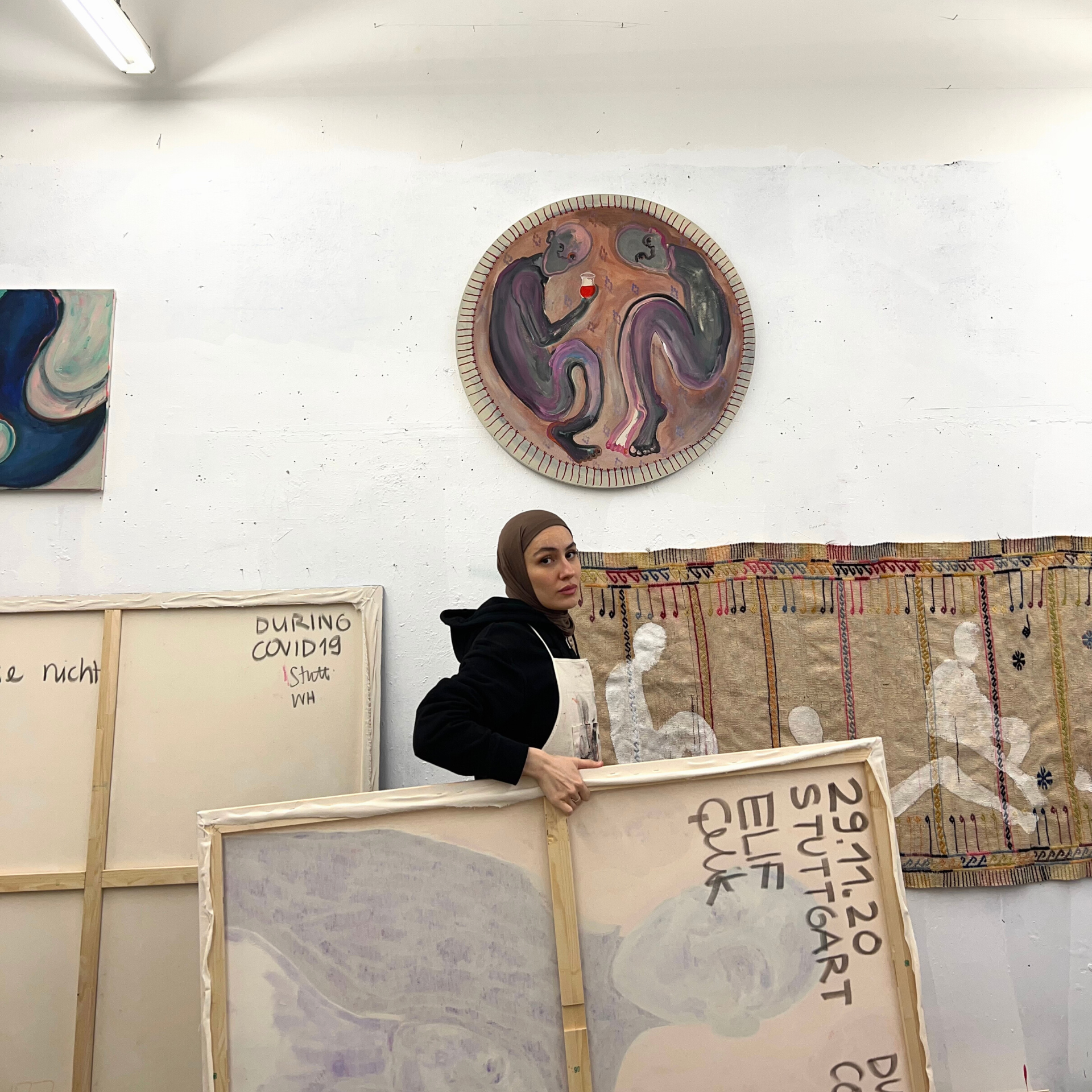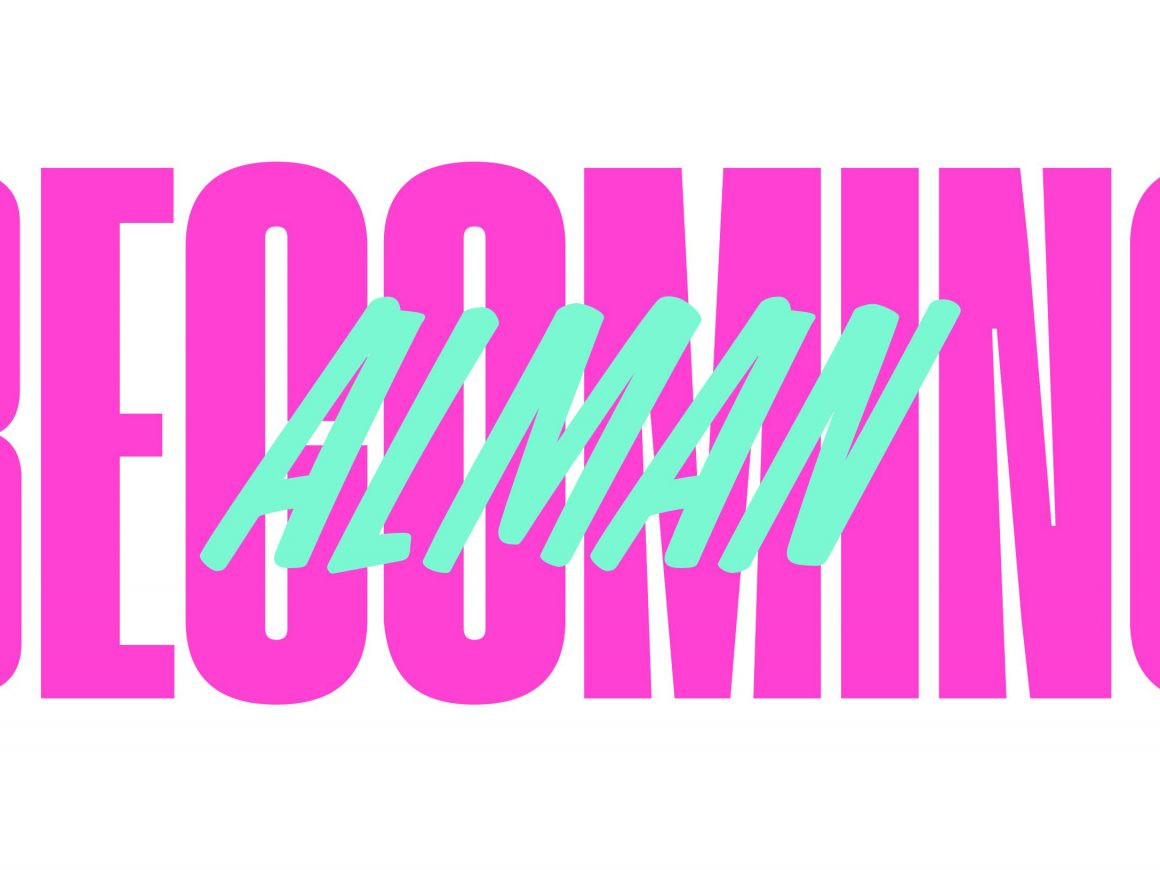BECOMING ALMAN | Oyounity Report by Beyza Yavuz-Radas
Becoming Alman was a two-day event in Berlin from the 26th to the 27th of May 2022. It took place at the Oyoun, a cultural center which operates since 2020. In describing this project, I will begin from my personal background and then directly step into describing the workshops after the event and, last but not least, the evening discussions held in the aftermath.
The Third Culture Kid
I was born in Berlin into a Turkish immigrant family whose grandparents came as „Gastarbeiter“ (guest workers) in the late ‘60s to Germany.
Being not quite a German in Germany nor really a Turk in Turkey, I grew up getting used to balancing two different cultures and languages and yet was able to still forge them together. I figured that I and so many others with a migrant background created their own very unique identity and culture with plenty of crazy and political „Deutschrap“, delicious fusion street food and art, an own way of clothing and even an own way of speaking german. Being something totally new, having a fusion identity, I consider myself a true third culture kid. Furthermore, I study political sciences at the FU with a focus on topics like; Materialistic Feminism, Queer Theories, Cultural Memory, Identity, and Sociolinguistics. Having the struggle myself, I will observe Becoming Alman from a peer but also a socio political perspective.
The Workshop Sessions
The workshops took place in four separate sessions between the 14th and 24th of May. Together with thirteen performers, who all had various migration backgrounds, one of the four main artists and Curator Lora Krasteva, worked on a performative theatrical play to showcase at the final event.
In a gracious and bright seminar room provided by and at Oyoun (which is known to be in one of Berlin‘s most migrant districts; Neukölln), the performers and Lora were also accompanied by a safeguard who could navigate their emotions and situations where the participants would not feel comfortable or overwhelmed at any time during the workshops.
On the first day, the group has constructed a set of rules and boundaries to effectively communicate and work with one another as well as to create a safe space. One rule was to speak English, another for example was to listen and not take things too personally.
The workshop included also different warm-up techniques such as; walking around the room as you feel, and creative interactive exercises where the group could bond as well as to know each other a bit better. In one exercise Lora separated the room into three sections; one side was „I like, love a lot“, the mid section was „I do not care for it“, the opposite wall was „I dislike, hate it“, later the artist asked various questions from „Do you like cheese?“ to „If you could change where you live, would you?“ and as the exercises flew different dynamics within the group came to the surface and the need to discuss different and similar opinions which were fun for everyone.
Later on the second workshop day, the performers could choose between three different topics on which they want to work in groups on a performative piece. They were given 20 minutes to prepare and after presented their output.
The produced performances by the three groups were worked on during the further workshops and brought into an interflowing play for the event days.
At one point, one of the performers realised that this project was not a space she wanted to be included in anymore and communicated it together with the support of the safeguard, and after left with no feelings harmed.
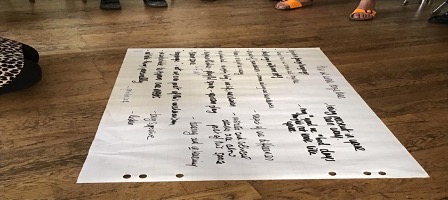
The Event
1) The environment
The event took place at Oyoun‘s spacious club; with 155 QMs, a bar, white brick walls, great technical support from light to sound, and room enough for at least 90-120 guests, it was a fine facility to give Becoming Alman the space it needed. Furnished with a large terracotta coloured Anatolian carpet and pillows to allow guests to sit on, it felt much inviting and comfortable.
2) The Public Act
Half an hour before the event started, Lora and the twelve performers decided on a public depiction of their first act together at Hermannplatz (a very well visited and crowded square in Neukölln).
It started with one person going to the „stage“ acting like a clerk miming some office-related work, then the next performer went in miming something other office related and so it goes…after the person with all the documents in his hands comes into the scene trying to engage with all the people working in front of him, yet no one is looking him one second in the eye. At the end of this four-minute silent play, the person with the documents gets frustrated and all the documents fly around, him falling to the ground and sitting on the floor with his hands on his knees opened into the air and just staying there, exhausted. Finally, all clerks vanish from the scene and only he is there alone, breathing heavily. This play is a perfect silent, yet harsh critic of the German bureaucracy and especially to the treatment of migrants within the Immigration Offices.
It depicted how migrants are on an endless fight for their rights and constantly face dehumanisation during the process of becoming a citizen or just being granted a permanent stay visa status.
3) The Exhibition and the first Act
The exhibition started at 7:30 pm on the first day of the event and went from 10 am to 7 pm on the next. It included one poem-installation with a red writing on the wall „UMOLHARQ Ñ ME VE“- a gaze that doesn‘t see me, from artist Jô Osbórnia who is a poet, performer, and translator.
Two paintings from Elif Çelik, who was born in Germany and studies Free Art at the Kunstakademie Stuttgart.
One piece of hers was painted on top of many maps of Germany where she placed a blue carpet with two people sitting/lying and having Turkish çay (black tea) which she named „ALMANYA“- Germany. The other painting was a giant piece painted on several fabric cuttings which were sewed together after. This piece depicted many abstract people with lines coming out of their bodies interflowing and was cooperated into the first act of the event. The eyes of the abstract people were cut out of the fabric so the performers were able to look through and observe the audience coming in and viewing the exhibition. Some noticed the performers watching them and some did not.
This act was also supported during the entry with sound. Where the audience could hear the performers saying peculiar things in many languages. One I understood was saying „Ich spreche auf der Sprache auf die ich bock habe.“-I speak the language I feel like speaking. The exhibitions focused clearly on the eyes, the gaze, the judgement. As the audience was observing Jô‘s installation, two guests shared their opinions on it with me:
„It really feels like I am watching him. As if I am disturbing and hurting him in a really weird way. It makes me feel his perspective and at the same time I can reflect my own behaviour.“
Guest 1
„It really grasps the GAZE! I mean WOW! It kind of communicates with you as you watch it.“
Guest 2
Elif‘s giant painting with the cutouts and performers sneaking through them also did not miss to amaze the audience;
„I thought of how immigrants are always othered. How they are alienated and silenced and others just looking at them as if they are nothing.“
Guest 3
„It creeped me out when I figured that there were people behind the painting, but it was so cool them watching us while we are them.“
Guest 4
„Such a great idea of putting the artists behind the painting and letting them watch us, it was in a way interactive which I found was very unique.“
Guest 5
At the entry, the audience was also introduced to a handout including the night‘s program as well as introducing the artist‘s background and a Becoming Alman-Written Response booklet where all performers including Lora, shared numerous stories and thoughts related to being a migrant.
Unfortunately the fourth artist Jingyun Li could not introduce her work during the event due to her covid infection but will showcase her art at a later time at Oyoun.
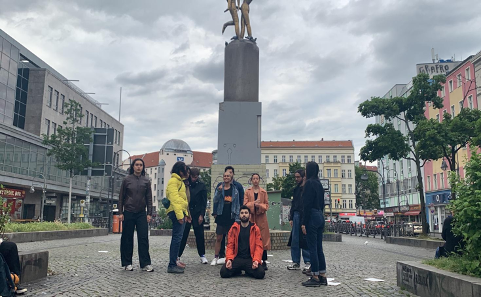

lif‘s Painting on the fabrics with the eye cutouts.
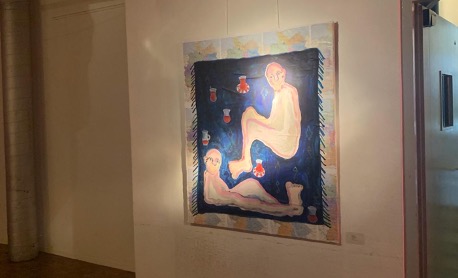
Elif‘s „ALMANYA“ Painting
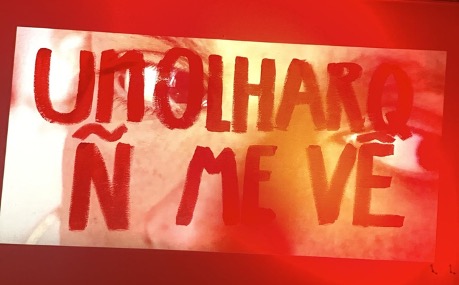
Jô‘s Poem-Installation
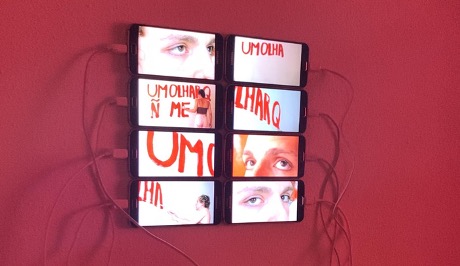
Jô‘s Poem-Installation
4) The Final Act
As the guests made themselves comfortable and sat down, the room got quieter. Everyone was waiting for something to happen.
Then the lights of the poem-installation went off and the performers marched from behind the artwork, walking around the audience and standing in front of their faces looking them straight into the eyes, then walking around again. The audience was very surprised at first and tried to figure out what exactly is happening at this very moment. Suddenly the performers start saying a number of things all at once; Entschuldigung-excuse me, verstehen Sie mich?-Do you understand me?, allemand?, deutsch?, nein!-no!
As they were repeating the phrases on and on they started to go faster and faster and then to shake and fall to the ground shaking as they all went quiet.
Within the German society, the expectation of migrants speaking flawless german is a very common one. People start treating you unwell if you do not perform as they want you to. Often migrants, whose mother tongue is even german, are questioned for their whole intelligence just by making one very small mistake. The constant pressure this puts people in daily often turns into anxiety and psychological problems, especially among the youngsters still going to school.
This performance showed the ridiculousness of trying to make people understand you, not speaking their language. The on and on repeating turns them crazy and they finally turn off completely because of the exhaustion of it all. It illustrated a silent German society where migrants are left out due to their language barriers. A society which does not even offer support to understand the people in front of them, letting them to their misery. Thinking of how the government authorities simply do not add widely spoken languages e.g Arabic, Turkish, Bosnian, Bulgarian, Romanian, and Farsi into systems to keep the bureaucratic hurdles greater than they should be.
In the second part of the play, the performers stood up from the floor sharing their feelings after one another.
„When I was four years old I moved to another city, in my own country. Since then I have the feeling that I don‘t belong anywhere…and I‘m fine with that.“
Performer 1
„You know guys it‘s all fun and games until it‘s not. And being married to a German doesn‘t save you, doesn‘t make things easier. You know how many times I have to go back and forth to my country in order to become an official „GERMAN“? Do you know how many times I have to go back to my country in order to belong to this place?“
Performer 2
„How can I belong when I am ready to go home?“
Performer 3
„I was standing in a concert and he started singing that song. Everyone was still. We took our phones and started filming. I looked around and realized…..(all performers together) WE ARE ALL HOMESICK.“
Performer 5
The next performer stood up heavily holding her leg and limping forward, struggling to find a word to share, ending with not sharing at all.
„Sometimes I don‘t like to think about what I would‘ve missed. Makes me want to mourn and cry so much. And sometimes, many times I cry at once when I feel like a lost child not sure where to go. Moving is so difficult and disorienting. Not everyone feels the same about it though. I have a friend who is a nomad, she doesn‘t make homes out of places as much as I do…When I left Cairo…
Baku
Brazil
Afghanistan…
I never said goodbye, even though deep down I knew I was not coming back…“
Performer 7
The show ends with all performers lining up together forming a unity and then one starting to hum a song and the others joining. As they stand in unity, supporting and holding each other the light went off and the humming after it.
As the lights went on the audience applauded in a big and loud round.
Lora came in with a bright smile and gave her thanks to everyone and invited the audience after a half an hour break to join the discussions.
During the break, I took the chance to talk to the audience about the play. Here are some responses to the whole performance;
„It was very intense. I thought I am falling into a trance, only when they started singing the song I could relax.“
Guest 6
„It was very exciting because it was interactive, you were involved, that I found very cool.“
Guest 7
„Everyone had a different story yet they all said together ‚We are homesick‘ that was very impressive…I also found myself in it, that one has to go back in order to belong…felt it.“
Guest 8
On the evening of the first event day, one guest came to the performers and thanked them for their work. She said;
„My own family came here as immigrants 50 years ago. I am so sorry that nothing has changed. But your show was so beautiful. Thank you.“
In total 80 guests joined the events within the two days. It was a quite mixed audience from age range to also background and gender.
Evening discussions
After the show of the second event day, Lora and all performers joined together with the audience, sitting on the club’s floor, for a relaxed discussion about everything that happened around Becoming Alman.
As Lora invited the guest to ask questions there was a small hesitation at first but turned out later to be a delightful conversation between the guest and the performers.
One of the first questions was how they worked together and how they intended and came up with the established work together and what the process looked like behind all of it. The performers explained how organic the construction was led by Lora, from the questions to the performances all was worked on as a team and changed as the opinions on something developed or a new perspective came to their realization.
It seemed as if they developed everything as things go as part of the experience for them as well. Truly impression I saw of the audience once the performers explained that all of this was constructed within four workshop days.
The main idea was to reflect on their experiences as immigrants in Germany and how to best get the message through to the audience, make them feel as they feel, and especially make them think.
One other question was:
„You are doing this also in other places. It has to look different every time. What I got from the performance was that it is largely based also on a complicated feeling to home, nation, and places we come to not only face exclusion, assimilation or anything in regards to this process being in Germany per se…so I wanted to ask first of all how much in the making of this performance that took place, like the element of Germany as such and what Germany means to you and you guys have done that in different places and taking it elsewhere…you come here from different places, what do you know about Germany as such and the element of becoming. So like how does that impact and influence the final outcome or what it is that you are going to perform in the process?“
Guest 9
Lora navigates the question to the performing group „The element of Germany, how much of that did feature in our work?“
„The name of this is ‚Becoming Alman‘ so that was the first question ‚What is an Alman?‘ ‚What is this concept?‘ from the view of other people who are not German. So in this case we asked a lot of questions between us because what is an Alman? It is not a specific German, it is a configuration from another culture that is living here and we are part of another culture living here. So it’s the view from other cultures who stay here who is naming the Germans in that way (Alman). And then we go around this concept and ask what does it mean to be an Alman and we had a lot of ideas about it. And I think that opened another question not just ‚what does it mean becoming a German citizen‘ it was much more to have an opinion for what it does means.“
Performer 8
Lora explained later how important it is for her to make sure to include local artists in the project rather than touring many places with the same artists. Her decision to do this was also on a social-economic level so the places she travels to with this project gain profit not just artistically but financially as well.
All together this project was a very safe space to attend for everyone. It felt like a green zone where everybody was welcome and could speak up, share their opinions and be unapologetically themselves.
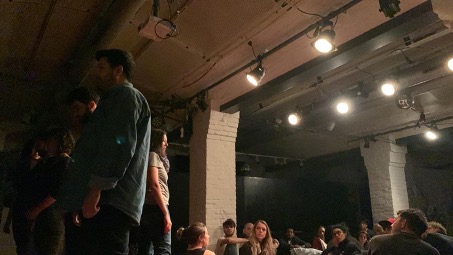

Becoming Alman
Kuratiert von Lora Krasteva, in Zusammenarbeit mit jô osbórnia, Elif Çelik & Jingyun Li
Mit Beiträgen von Eda Özkan, Ezzio Dante Debernardi Pizarro, Antonia Giesen, Sabir Maharramov, Fortuna Hernández, Mubaraka Farahmand, Shamayel Shalizi, Franco Fernando Toledo Flores, sondos shabayek, Murad Yuzbashov, Jota Ramos, Helga Elsner Torres
Produziert von Claire Gilbert
Mit Dank an Beyza Yavuzradas, Aija, Harkiran Kelsi und die Interviewpartner*innen, die anonym bleiben möchten.
Cover photo: Andie Riekstina


